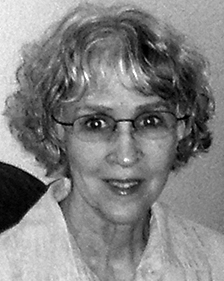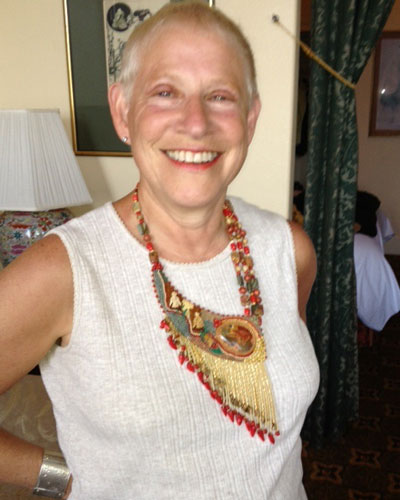


Lovers old and new, featuring work by Susan Cohen, Catherine McGeehan, Penelope Scambly Schott and Victoria Korth.
7 minutes
TRANSCRIPT
Dr. Sheril Kirshenbaum wrote a book titled The Science of Kissing. In it, she said the earliest literary evidence for kissing comes from India about 3,500 years ago. She also said this:
A passionate kiss can make our pupils dilate, probably one reason so many of us close our eyes; two-thirds of us tilt our heads to the right when we kiss, and it’s not correlated with right-handedness; and according to at least some research, people remember more of the details about their first kiss than their first sexual experience.
I mention all this because July 6 was International Kissing Day. Even though the day has passed, it’s never too late to send a card—or to kiss someone, for that matter. I’d hoped to build this episode of Burning Bright around kissing, but Passager seems to have a dearth of pieces about kissing. All I could come up with was my own:
I looked for pieces ‘bout kissing
But it seemed they all were missing.
Can you believe I have trouble getting my poetry published!
But I did find some great pieces about closeness and romance. Here are a few.
Susan Cohen said she and her husband visited a mortgage broker who used the term spousely-held. She said, “Neither of us had heard the term before, but what poet in a long marriage could resist its inspiration?” Here’s Susan’s poem “Spousely-Held” from Passager Issue 51. It begins with the epigraph
I’ll put down that it’s spousely-held. – mortgage broker
Even after I no longer want
to be arousely-held, love,
I’ll want to be spousely-held.
When I don’t need to be Wowsly-held,
I’ll still need to be spousely-held, clutched
to your chest like a bottle
that can’t be pried from your grip. Hold me
for years yet, until I’m so short of breath that breath
stops short, and I die housely-held in your arms.
Then burn me, bag me, box me, shelf me.
Say a few kind words. I’ll wait
patient as only ash can be patient,
my objections to death mousely-held.
I want our ashes to float in the ocean,
wrapping, a cloud in the water
suspended in waves. Let’s be unsettled
as salt, and drift off a pier where we sat
when were just vowsly-held.
Susan Cohen’s poem “Spousely-Held.”
Catherine McGeehan wrote this next poem for her mother on the death of her father. “Leaning.”
They leaned into each other
for so long
that the weight of his hand
on her arm
seemed part of her own
and his fingers bent
into a shape that was hers
so that when he died
her hands curled inward
and the words of songs
could only be half remembered.
“Leaning,” Catherine McGeehan, from Passager Issue 58.
Next, “Two Old Lovers” by Penelope Scambly Schott.
If you come through the cottage garden,
I will be frilled pinks on either side of your path.
When you open the picket gate, don’t worry:
I will be the white trellis dripping with beach roses.
If you walk along the pebbled beach,
I will be the narrow edging of white foam.
If you lay your hand on retreating water,
I will be these tiny fish streaking between fingers.
After I measure the pulse of your wrist,
I will turn into a sand crab tickling your palm.
When I am a sand crab, oh, my dearest,
you will cup me like water.
I will curl and rush out to sea. I will.
But I promise to trail the moon back to you.
Please know I am inventing this whole story:
the garden, the gate, even the ocean.
If and then are how I pretend. Are you listening?
We needn’t pretend our hair has gone white
Like broken foam on the sea.
“Two Old Lovers” by Penelope Scambly Schott from Passager Issue 50. She said that if it sounds familiar, it’s because she wrote it as the grown-up version of the children’s classic picture book, Runaway Bunny.
And finally on this episode inspired by International Kissing Day, “Necking” by Victoria Korth. She said she was exploring the various meanings and implications of the word “necking.” She said she wanted to layer these meanings, respecting a narrative outline in a painterly fashion, seeking to create a visual effect through sound.
She barely knew him, yet they were falling
towards earth as if falling were the same
as landing on grass behind the firehouse at dusk,
his hand stretching the neck of her blue sweater
while he rubbed his cheek against her, his neck
pliable as a swan, upper body heavier
as they leaned back, his dark red sweatshirt
nearly invisible, empty bleachers an outline,
wet honeysuckle familiar, sweet.
He could have tightened fingers, rough
from summer work, squeezed as she did the neck
of her violin, he could have lifted her into his van;
a mute swan grunted softly, while he wrestled his need
to touch, and she clung on, as if to earth’s crust.
From Passager Issue 54, “Necking,” Victoria Korth.
To subscribe to or learn more about Passager and its commitment to writers over 50, go to passagerbooks.com. Passager offers a 25% discount on the books and journal issues featured here on Burning Bright. Visit our website to see what’s on sale this week. You can download Burning Bright from Spotify, Apple and Google Podcasts and various other podcast apps.
For Kendra, Mary, Christine, Rosanne, and the rest of the Passager staff, I’m Jon Shorr.
Not pictured: Victoria Korth.






